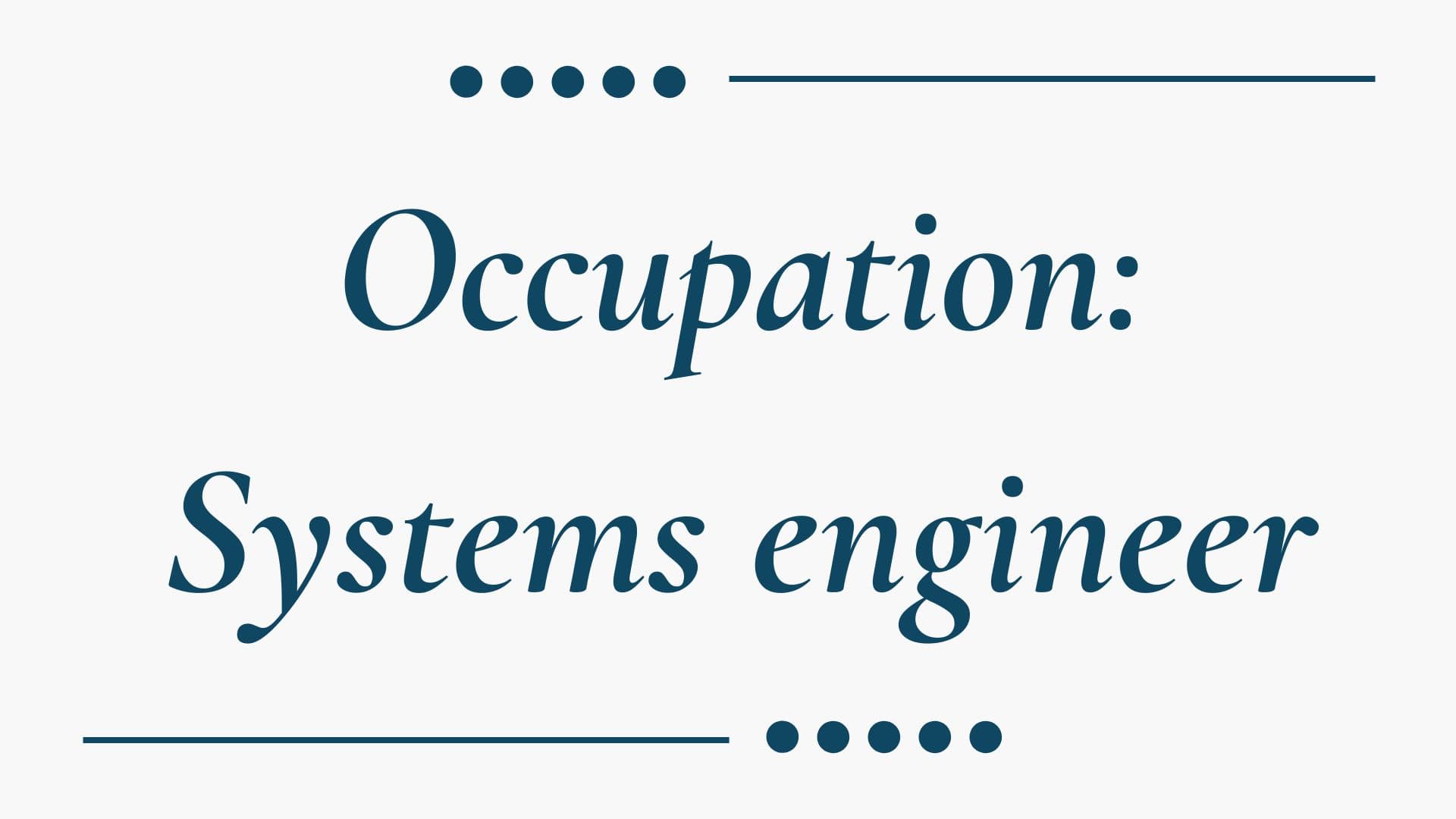TRUSTED BY THE SMARTEST TEAMS IN THE WORLD FOR CERTIFIED CANDIDATES
SPOTO Blogs
Useful learning materials to become certified IT personnel
-
- 344
- SPOTO
- 2025-04-25 17:30
-
- 959
- SPOTO
- 2025-04-23 10:43
-
- 522
- SPOTO
- 2025-04-22 17:12
-
- 567
- SPOTO
- 2025-04-22 16:53
-
- 864
- SPOTO
- 2025-04-18 16:32
-
- 655
- SPOTO
- 2025-04-18 15:22
-
- 676
- SPOTO
- 2025-04-17 22:43
-
- 818
- SPOTO
- 2025-04-17 17:16
-
- 1232
- circle
- 2025-04-09 16:31
TRUSTED BY THE SMARTEST TEAMS IN THE WORLD FOR CERTIFIED CANDIDATES
SPOTO Blogs
Useful learning materials to become certified IT personnel
-
- 344
- SPOTO
- 2025-04-25 17:30
Table of Contents1. What is a Collaboration solutions architect ?2. Essential Skills for Collaboration solutions architect3. Career Insights: Salary, Outlook & Related Roles4. Path to Becoming a Collaboration solutions architect 1. What is a Collaboration solutions architect ? Solution Architects play a central role in decision making. Solution architects are responsible for devising the overall solution architecture to ensure it fulfills business requirements while being compatible with existing systems and technologies. Prioritize technology vision and strategy, evaluate potential technology solutions, and ensure all technical components of the project meet business goals. Solution architects also aid in clarifying non-functional requirements such as scalability, security and performance benchmarks. Solution Architects must apply multiple skills in projects to increase efficiency and effectiveness; becoming one may be ideal for hardworking yet confident individuals seeking autonomy and influence. 2. Essential Skills for Collaboration solutions architect Communication skills Collaboration skills Analytical skills Design skills SaaS and Amazon Web Services integration Cloud computing and IT risk mitigation Database management Product lifecycle processes Understanding of communication technologies (e.g., CRM and POS) Web development applications Basic coding Marketing and customer service SQL data modeling Communication skills Analytical skills 3. Career Insights: Salary, Outlook & Related Roles (1) What Do Collaboration solutions architects Earn? Salaries for architects depend on factors like experience, location and company size; entry-level architects typically earn between $85,000 and $110,000 annually in the US while mid-level professionals with several years of experience can expect salaries between $110,000 to $145,000 annually. Senior-level architects typically earn salaries between $145,000 and $180,000 or higher; overall compensation in top technology companies often surpassing $250,000-plus (including bonuses and stock options). Payouts vary between PS55,000 to over PS100,000.00 in the UK; $95,000 to over $150,000+ in Canada and equivalent levels across Europe, Australia and Asia. Certifications, cloud expertise and enterprise deployment experience can significantly boost earning potential in this field. (2) Job Outlook and Growth Potential According to the Bureau of Labor Statistics, employment of solution architects (also known as computer network architects) is expected to experience 13% annual growth between 2023-2033. With companies expanding digital capabilities and IT networks, demand should continue. Solution architects must be prepared to implement support measures effectively within an increasingly digital and technological world. (3) Relevant Job Titles Network Engineer Network Administrator Network Technician Network Analyst Network Security Engineer Network Architect Network Operations Engineer System Administrator Infrastructure Engineer 4. Path to Becoming a Collaboration solutions architect (1)Educational background required for the occupation Most Solution Architects have a bachelor's degree, usually in computer science, IT, software engineering or a closely related field. 66% of Solution architects have a bachelor's degree. The foundational education they receive equips them to have the technical skills and analytical knowledge necessary for an IT career. (2) Work experience related to the professional field These positions offer hands-on experience with diverse technologies and insights into software development, networking, and IT infrastructure. These positions provide hands-on knowledge and insight into IT infrastructure, software development and networking. Specialization allows for a deeper understanding of key technologies that are essential to making architectural decisions. (3)Have necessary project management capabilities Project Management Abilities :Even if you are a solution architect, taking on project management duties in a technical role will help develop the leadership and organizational skills that you need. It is advantageous to have experience as a project manager or project coordinator. (4)Attain targeted technical expertise and certifications The CCIE Collaboration certification validates you as an expert in end-to-end lifecycle skills for complex collaboration solutions and demonstrates your advanced skills in how to plan, design, implement, operate, and optimize complex enterprise collaboration solutions. Lead the way with the Cisco Certified Internetwork Expert (CCIE) Collaboration certification. -
- 959
- SPOTO
- 2025-04-23 10:43
Table of Contents1. What Does a Network Support Engineer Do?2. Key Skills for a Career in Network Support Engineering3. Career Insights: Salary, Outlook & Related Roles4. Pathway to Becoming a Network Support Engineer 1. What Does a Network Support Engineer Do? A Network Support Engineer is an IT specialist responsible for the design, implementation, maintenance, and real-time support of an organization's network infrastructure. Their primary role is to ensure seamless connectivity and optimal performance across systems such as LANs, WANs, cloud networks, and servers. They troubleshoot technical issues, monitor system performance, and provide user support to maintain uninterrupted access to network services. Depending on the organization, responsibilities may include upgrading communication systems, enhancing data security, or deploying new technologies to support operational goals. In essence, network support engineers play a critical role in keeping businesses connected, secure, and operational—supporting everything from file sharing to communication platforms and external data access. 2. Key Skills for a Career in Network Support Engineering Strong IT Proficiency: Demonstrated excellence in managing and troubleshooting computer networks, hardware, software, and systems infrastructure. Analytical Problem-Solving: Ability to diagnose complex technical issues and implement effective solutions in a timely manner. Effective Communication: Capable of explaining technical concepts clearly to non-technical users, both verbally and in writing. Organisational & Multitasking Skills: Skilled in prioritising tasks, managing workloads efficiently, and responding to multiple technical issues simultaneously. Team Collaboration: Works well in cross-functional teams, supporting colleagues and contributing to group problem-solving. Commitment to Continuous Learning: Dedicated to staying current with evolving technologies, certifications, and industry best practices. Business and User Awareness: Understands the organization's operational goals and aligns IT support efforts with user needs and business priorities. 3. Career Insights: Salary, Outlook & Related Roles (1) How Much Do Network Support Engineers Earn? As of April 15, 2025, the average annual salary for a Network Support Engineer in the United States is $92,475, which equates to approximately $44.46 per hour, or $1,778 per week and $7,706 per month. In Los Angeles, the average salary is even higher, reaching $99,643 per year—about $47.91 per hour. According to ZipRecruiter, salaries in this role typically range from $74,500 at the 25th percentile to $132,000 for top earners, reflecting both demand and cost of living in the region. (2)Job Outlook and Growth Potential In the United States, the Computer Systems Design and Related Services sector employs the largest share of network support engineers, accounting for approximately 20.1% of all roles in 2023.Other leading industries include: Wired and Wireless Telecommunications (excluding Satellite): 7.9% Local Government (Education and Hospitals): 6.7% Corporate Management and Enterprise Services: 5.8% State Government (Education and Hospitals): 5.3% Local Government (excluding Education and Hospitals): 4.5% These sectors reflect the broad applicability of network support roles across both public and private domains. (3)Related Job Titles in Network Engineering Network Engineer Network Administrator Network Architect Network Security Engineer Network Analyst Network Specialist Systems Engineer VoIP Engineer IT Support Specialist Technical Support Specialist Service Consultants Computer Network Technicians 4. Pathway to Becoming a Network Support Engineer (1)Earn a Relevant Degree and Gain Real-World Experience Most network support engineers hold a degree in a computing-related field, such as computer science or information technology.To pursue a career in network support engineering, a strong academic foundation in STEM subjects—particularly mathematics, computer science, or physics—is essential. Universities and employers typically look for candidates with solid GCSE and A-level results, especially in English and maths.These programs provide a deep understanding of networking principles, systems architecture, and the interaction between hardware and software. (2) Obtain Industry-Recognized Certifications in Network Support If you're a Network Support Engineer aiming to elevate your career to the highest professional level, the Cisco Certified Internetwork Expert (CCIE) Service Provider certification is your gateway to elite status in the networking field. This globally recognized credential validates your ability to design, implement, manage, and optimize complex service provider infrastructure, ensuring secure, scalable, and high-performance networks. By earning the CCIE Service Provider certification, you not only demonstrate technical mastery of advanced IP networking but also position yourself as a trusted expert in enterprise-class service delivery. Whether you're looking to lead large-scale deployments, solve mission-critical connectivity issues, or architect next-generation network solutions, CCIE opens doors to senior roles, global opportunities, and top-tier salaries. Take the next step toward becoming a strategic force in network engineering—prove your capabilities, command respect in the industry, and unlock your full potential with the CCIE Service Provider certification. (3)Develop Practical Skills Through Technical Training For Network Support Engineers, technical proficiency goes beyond theory—it’s about applying knowledge in real-world environments. Through hands-on training programs, labs, and simulations, you gain critical experience in configuring network devices, troubleshooting connectivity issues, and managing both wired and wireless systems. Technical training equips you with the skills needed to work with routers, switches, firewalls, and cloud-based network infrastructures. It also enhances your understanding of key protocols and tools used in monitoring, diagnostics, and performance optimization. Whether through vendor-specific certifications, bootcamps, or structured apprenticeship programs, practical training is essential for building the confidence and capability to support and maintain complex network environments effectively. (4)Pursue Career Opportunities in Network Support Engineering Network Support Engineering offers a dynamic career path with growing demand across industries. As businesses increasingly rely on robust IT infrastructure, skilled professionals who can ensure secure, reliable, and high-performing networks are essential. By entering this field, you open the door to a variety of roles, including network analyst, IT support specialist, systems administrator, and infrastructure engineer. Whether in telecommunications, finance, healthcare, or government, network support engineers are pivotal to operational continuity and digital innovation. With the right technical foundation, certifications, and hands-on experience, you can advance quickly—from entry-level positions to senior roles in network architecture, cybersecurity, and IT leadership. This is a career built on both challenge and opportunity—ideal for individuals who are technically inclined, solution-oriented, and eager to support the digital backbone of modern enterprises. -
- 522
- SPOTO
- 2025-04-22 17:12
Table of Contents1.What Is a systems engineer?2.Professional Skills Required to Become a systems engineer3.The Details4.How To Become a systems engineer? A Systems Engineer is a multidisciplinary professional who plays a critical role in the design, integration, and management of complex systems across their entire lifecycle. From conceptualization to deployment and optimization, systems engineers ensure that technological solutions are efficient, secure, and aligned with operational goals. Their work spans a wide array of industries—including IT, aerospace, healthcare, and manufacturing—where they oversee everything from infrastructure architecture to compliance and performance enhancement. With strong demand fueled by rapid digital transformation and increasing system complexity, a career in systems engineering offers a dynamic, high-impact path marked by competitive compensation, long-term growth potential, and cross-industry relevance. 1.What Is a systems engineer? Systems engineers play a pivotal role in overseeing the overarching aspects of software, services, or systems, including timelines, budgeting, and the resolution of potential challenges. Their expertise is utilized across a wide range of sectors, such as software engineering, healthcare, and manufacturing. As key contributors to the entire lifecycle of a system—from initial concept through to deployment—systems engineers are integral to the success of product development. Their responsibilities include ensuring that all solutions are designed in alignment with operational standards and are continually monitored, refined, and enhanced to deliver optimal performance throughout their lifecycle. 2.Professional Skills Required to Become a systems engineer (1)System Design and Architecture Architect and define the structure of complex systems, ensuring alignment with both functional and non-functional requirements. (2)Integration and Implementation Supervise the seamless integration of diverse subsystems, ensuring their coordinated operation and optimal performance. (3)Testing and Validation Execute comprehensive testing protocols to confirm system reliability, security, and adherence to established specifications. (4)Documentation and Compliance Develop and maintain detailed documentation for system configurations, operational workflows, and compliance with industry standards. (5)Problem-Solving and Optimization Diagnose and resolve system challenges, implementing strategic solutions to minimize risks and enhance operational efficiency. (6)Collaboration and Communication Collaborate cross-functionally with IT, product management, and development teams to ensure integrated and secure system functionality. 3.The Details How much does a systems engineer make? ​As of 2025, Systems Engineers in the United States earn competitive salaries that vary based on experience, location, and industry. Here's an overview: Average Annual Salary: Approximately $127,215, equating to about $61.16 per hour. Median Base Salary: Around $114,530 per year. Salary Range: Typically between $98,000 (25th percentile) and $157,000 (75th percentile), with top earners making up to $167,000 annually. Career Outlook for systems engineer According to data from the U.S. Bureau of Labor Statistics, engineering occupations—including systems engineering roles—are expected to see significant job growth through 2033. With approximately 195,000 job openings projected annually due to expansion and workforce turnover, opportunities in the field remain abundant. Roles closely related to systems engineering, such as computer systems analysts, are projected to grow by 11% over the same period, highlighting sustained industry demand. In addition to strong job growth, systems engineers benefit from competitive compensation. The median annual salary for professionals in related engineering fields consistently exceeds the national average, with experienced engineers commanding even higher wages, particularly in high-demand sectors such as cloud computing, cybersecurity, and AI-driven technologies. Overall, systems engineering offers a dynamic and rewarding career path, marked by long-term job security, diverse industry applications, and the opportunity to play a critical role in the development and maintenance of essential infrastructure in today’s digital world. Job Titles Related to systems engineer Infrastructure Engineer Network Engineer DevOps Engineer Software Engineer Embedded Systems Engineer Cybersecurity Systems Engineer Software Systems Engineer Technical Solutions Engineer Systems Integration Engineer Control Systems Engineer IT Systems Engineer 4.How To Become a systems engineer? (1)Pursue a Relevant Bachelor's Degree and Practical Internship Experience Begin by obtaining a bachelor’s degree in a related discipline—such as computer science, information systems, electrical engineering, or cybersecurity. Complement academic learning with internship opportunities to acquire practical, hands-on experience in IT operations and infrastructure. (2)Earn Recognized Industry Certifications in Data Center Technologies In a competitive job market, certifications can be the edge that sets you apart. While hands-on experience is invaluable, professional credentials signal to employers that you have verified, up-to-date knowledge and a serious commitment to your field. For Data Center Engineers, certifications like CCIE Enterprise Infrastructure certification can certifiy your know-how to implement core data center technologies including network, compute, storage, automation, and security. Be the data center networking go-to expert with the Cisco Certified Enterprise Infrastructure certification. (3)Engage in Technical Training for Applied Skills Development Enhance your professional profile by securing certifications that validate your expertise in core data center functions. Credentials such as the CCNP Data Center demonstrate proficiency in areas including network infrastructure, storage systems, automation, and security protocols. (4)Explore and Apply for Data Center Engineering Opportunities Actively search for job openings that align with your qualifications and career interests. Submitting tailored applications positions you as a serious candidate and offers a pathway to securing roles in this high-demand field. -
- 567
- SPOTO
- 2025-04-22 16:53
Table of Contents1.What Is a Data center engineer?2.Professional Skills Required to Become a Data Center Engineer3.The Details4.How To Become a Data center engineer? As the digital landscape continues to evolve, the demand for skilled professionals in data center operations is stronger than ever. A Data Center Engineer plays a pivotal role in designing, implementing, and maintaining the critical infrastructure that supports modern digital services. These engineers are responsible for ensuring the reliability, efficiency, and security of data center operations, which serve as the backbone of organizations worldwide. With industries increasingly reliant on technologies like the Internet of Things (IoT) and artificial intelligence (AI), the need for well-trained, technically proficient data center engineers is expected to grow substantially. Those pursuing a career in this dynamic field can expect competitive salaries, diverse opportunities, and a rewarding path that combines cutting-edge technology with hands-on problem-solving skills. 1.What Is a Data center engineer? A Data Center Engineer is a highly specialized IT professional tasked with the design, implementation, maintenance, and optimization of the infrastructure that powers an organization’s data processing and storage systems. This role plays a vital part in ensuring the reliability, efficiency, and security of data center operations—an essential backbone of today’s digital services. 2.Professional Skills Required to Become a Data Center Engineer Anvanced Technical Expertise:Proficient in networking, server infrastructure, virtualization, and system integration to support the core operations of data centers. Project Leadership and Management:Capable of leading cross-functional teams, managing large-scale projects, and ensuring timely and cost-effective delivery of technical solutions. Innovative Problem-Solving:Skilled in analyzing complex technical issues and developing creative, efficient, and scalable solutions under pressure. Interdepartmental Collaboration:Experienced in coordinating with IT, operations, security, and other departments to ensure seamless and secure data center performance. Compliance and Best Practices:Thorough understanding of industry regulations, safety standards, and data security protocols to maintain operational compliance. Customer-Centric Approach:Focused on delivering reliable, high-quality services that meet the needs of internal and external stakeholders. Continuous Learning and Adaptation:Committed to staying current with emerging technologies and continuously improving skills to meet evolving industry demands. 3.The Details How much does a Data center engineer make? The salary of a Data Center Engineer can vary depending on factors such as experience, location, education, and the specific company they work for. The average Data Center Engineer in the US makes $106,385. Data Center Engineers make the most in San Jose, CA at $210,045 averaging total compensation 97% greater than US average.entry-level data centre engineers in the U.K. typically start with an annual salary of around £55,000​​.According to the latest data, the average Microsoft data centre engineer salary for mid-level positions ranges from £62,500 to £65,000 annually.As of late 2023, the salary range for a Senior Data centre Engineer at Microsoft in the United Kingdom is quite impressive.The total pay range lies between £82,048 to £85,000 per year​​. Career Outlook for Data center engineer Data centers provide competitive salaries, engaging work environments, and a broad range of career opportunities for individuals eager to thrive in a fast-paced, evolving industry. The rapid advancement of technologies such as the Internet of Things (IoT) and artificial intelligence (AI) is driving organizations across various sectors to invest heavily in modern digital infrastructure to support sustained growth. Nowhere is this demand more critical than in data centers, which serve as the backbone of today's digital economy. According to the U.S. Bureau of Labor Statistics, employment in electrical engineering is projected to grow by 9 percent from 2023 to 2033—more than twice the average growth rate across all occupations. The median annual salary for professionals in this field stands at $109,010. Despite this strong demand, data centers continue to face significant challenges in attracting and retaining qualified engineering talent. Job Titles Related to Data center engineer Data Center Technician Data Engineer Data Center Operations Engineer Network Engineer System Engineer Infrastructure Engineer Data Center Administrator Cloud Architect 4.How To Become a Data center engineer? (1)Earn the bachelor's degree and internship experience Employers generally expect data center engineers to hold a bachelor's degree in a computer-related discipline, such as cybersecurity, computer science, software or systems engineering, information systems, or electrical engineering. Gaining programming experience—whether through academic clubs, internships, or independent study—can be particularly advantageous. Additionally, many universities offer students the opportunity to gain practical, hands-on experience by working within campus IT departments, further reinforcing the skills and knowledge acquired in the classroom. (2)Obtain industry-recognized skills certification in the data field In a competitive job market, certifications can be the edge that sets you apart. While hands-on experience is invaluable, professional credentials signal to employers that you have verified, up-to-date knowledge and a serious commitment to your field. For Data Center Engineers, certifications likeCCNP Data Center certification can certifiy your know-how to implement core data center technologies including network, compute, storage, automation, and security. Be the data center networking go-to expert with the Cisco Certified Network Professional (CCNP) Data Center certification. (3)Seek training opportunities for hands-on experience Consider pursuing an internship or training program that offers hands-on experience in network and server maintenance. Data center technician roles can be highly competitive, and employers often favor candidates with practical experience in installing and testing data center infrastructure and systems. Gaining this technical expertise through a structured training program can significantly enhance your qualifications and improve your chances of securing full-time employment in the field. (4)Apply for data center engineer jobs Begin by exploring data center technician job openings and applying for positions that align with your interests and qualifications. A job application serves as a formal expression of your interest in a specific role and demonstrates your intent to contribute to the organization. Submitting an application provides the opportunity to be considered for employment, and you are encouraged to apply for any role that matches your skills and experience. -
- 864
- SPOTO
- 2025-04-18 16:32
Table of ContentsIn an age where cyber threats are growing more sophisticated by the day, Security Engineers are the digital world’s frontline defenders. These tech-savvy problem-solvers don’t just react to threats—they anticipate and prevent them. Whether it’s designing secure network systems, building firewalls, or outsmarting hackers, Security Engineers are essential to keeping data safe and businesses running smoothly. If you’re passionate about cybersecurity and ready to take on real-world challenges, this could be the career path for you.1.What Is a Security engineer?2.Professional Skills Needed to Become a Security engineer3.The Details4.How To Become a Security engineer? In an age where cyber threats are growing more sophisticated by the day, Security Engineers are the digital world’s frontline defenders. These tech-savvy problem-solvers don’t just react to threats—they anticipate and prevent them. Whether it’s designing secure network systems, building firewalls, or outsmarting hackers, Security Engineers are essential to keeping data safe and businesses running smoothly. If you’re passionate about cybersecurity and ready to take on real-world challenges, this could be the career path for you. 1.What Is a Security engineer? Often known by alternate titles such as Information Assurance Engineer or Information Systems Security Engineer, Security Engineers collaborate closely with various teams—including IT, network administration, and software development. Together, they identify vulnerabilities, evaluate existing security measures, and design effective solutions to combat emerging risks. A Security Engineer is responsible for designing, implementing, and maintaining systems that protect an organization's digital assets from potential cyber threats. Their primary role is to develop and oversee security protocols that safeguard data and technology infrastructure, ensuring that sensitive information remains secure and systems are shielded from breaches, leaks, or cyberattacks. While Security Analysts focus on identifying weaknesses in cybersecurity, Security Engineers take a proactive approach by building and implementing systems like firewalls and intrusion detection technologies to prevent attacks. They rely on a combination of encryption techniques, security tools, and industry best practices to create a robust defense system. 2.Professional Skills Needed to Become a Security engineer Vulnerability Assessment Security Engineers must be skilled in evaluating the IT landscape to identify potential weaknesses in systems, networks, and applications, ensuring that all vulnerabilities are proactively addressed before exploitation. Security Process Development They should be capable of designing and implementing security protocols and procedures, creating effective strategies to safeguard sensitive data and prevent cyber incidents. Threat Prevention Expertise A key skill involves selecting and integrating best-in-class threat prevention software, ensuring the implementation of tools that provide strong, ongoing protection against evolving cyber threats. Security Mechanism Design and Implementation Security Engineers must be adept at developing new security measures and integrating them into existing systems, ensuring a robust defense against both current and emerging cyber risks. System Maintenance and Upgrades Maintaining and upgrading security infrastructures is crucial for a Security Engineer. They must ensure that all security systems remain up-to-date and effective in defending against new vulnerabilities and threats. Incident Investigation and Reporting In the event of a security breach or attack, Security Engineers must investigate the incident thoroughly to understand its root cause, document findings, and generate detailed reports to support audits and future preventive measures. 3.The Details security engineer salary United States:Network Security Engineers earn an average annual salary of $134,470. In major cities like Canberra, salaries can reach up to $443,509 per year. ​ Canada:The average salary is $132,279 per year. In Toronto, one of the highest-paying cities, Network Security Engineers can earn up to $218,490 annually. ​ United Kingdom:The average salary stands at £50,260 per year. ​In Leeds, one of the highest-paying cities, salaries can reach £114,804 annually. ​ Germany:Network Security Engineers earn between €53,000 and €75,000 per year, with an average of €64,750. ​ Australia:The average salary is $134,470 per year. ​In Canberra, one of the highest-paying cities, salaries can reach up to $443,509 annually. ​ India:The average salary is ₹6,20,222 per year. ​In Pune, one of the highest-paying cities, salaries can go up to ₹10,15,644 annually. ​ China:Network Security Engineers earn between CNY 13,000 and CNY 19,000 per month, translating to approximately $93,000 to $137,000 per year. ​ The average security engineer salary in the United States is $104,524. Security engineer salaries typically range between $77,000 and $141,000 yearly. The average hourly rate for security engineers is $50.25 per hour. Career Outlook for Security engineer The demand for cybersecurity professionals, including security engineers, is expected to see significant growth in the coming years. According to the U.S. Bureau of Labor Statistics (BLS), employment in computer systems design and related services is projected to grow by 56% through 2026. This surge is largely driven by the increasing reliance on cloud services by small and medium-sized businesses, alongside the rising frequency of cybersecurity threats. As a result, managed security services providers will be in high demand to address these concerns. Graduates with a Bachelor of Science in Cyber Engineering, such as those from HCU, are well-positioned to pursue a variety of career paths in cybersecurity. These include roles in security operations, network security, threat mitigation, and incident response, among others. Many of these graduates will focus on designing the next generation of connected devices, ensuring robust security measures are built into products during their design and production phases. Job Titles Related to Security engineer Network security engineer Security analyst Cybersecurity Engineer Security Systems Engineer IS Architect Information Technology Security Analyst Information Security Engineer IT Security Engineer Information Security Specialist Cybersecurity Architect cybersecurity specialist 4.How To Become a Security engineer? (1)Complete a Relevant Degree Program Employers typically expect security engineers to hold a bachelor's degree in a computer-related field such as cybersecurity, computer science, software or systems engineering, information systems, or computer programming. Gaining programming experience—either through student clubs or by learning a language independently—can be especially beneficial. Additionally, some universities offer opportunities to work within their IT departments, providing students with valuable hands-on experience aligned with their area of study. (2)Obtain Recognized Certifications Obtaining professional certification will be beneficial to your new career.The Cisco Certified Network Professional (CCNP) Security certification validates your expertise in securing the critical infrastructure organizations depend on.Demonstrate your ability to design and implement comprehensive security solutions—including cloud architecture, user and device protection, network defense, and risk assurance. To obtain this certification, you only need to pass two exams: A core exam One of seven CCNP Security concentration exams (3)Begin Your Career Search Many future security engineers start their careers by working in entry-level IT positions for one to five years. Roles such as system administrator, database administrator, web developer, IT technician, support specialist, software engineer, or network engineer provide essential hands-on experience. These positions help build a strong foundation in network management, system maintenance, and troubleshooting common technical issues. Additionally, they offer valuable opportunities to connect with mentors and industry professionals who can provide guidance and open doors to future roles in cybersecurity. (4)Pursue Advanced Education Consider enrolling in a master's program in cybersecurity or a specialized area of information security to deepen your expertise and open doors to senior-level roles. -
- 655
- SPOTO
- 2025-04-18 15:22
Table of Contents1.What Is a Network Designer?2.Professional Skills Needed to Become a Network Designer.3.The Details4.What Education is Required to Become a Network Designer?5.Becoming Certified as a Network Designer In today's interconnected world, the backbone of every organization is its network infrastructure. At the heart of this infrastructure are Network Designers—professionals who meticulously plan, design, and implement the systems that enable seamless communication and data flow. Their expertise ensures that networks are not only functional but also secure, scalable, and aligned with the organization's strategic goals. Network Designers collaborate closely with IT teams to create customized solutions that meet specific business needs. They analyze existing systems, anticipate future requirements, and integrate new technologies to enhance performance and reliability. Their role extends beyond mere technical implementation; they are visionaries who anticipate challenges and design networks that can adapt to evolving demands. This article offers a professional and authoritative look at what a Network Designer is, how to pursue this career path, and practical steps you can take to get there. 1.What Is a Network Designer? A Network Designer plays a key role in building the digital backbone of an organization. They are responsible for designing, developing, and maintaining tailored computer networks that enable secure, efficient communication and data sharing across teams and systems. By understanding business goals, they create cost-effective network solutions that support current operations and future growth. In addition to planning the network architecture, Network Designers may also provide technical support, troubleshoot connectivity issues, and ensure the system aligns with both performance needs and security standards. Their work helps keep organizations connected, productive, and prepared for evolving technological demands. Key Responsibilities of a Network Designer Design, implement, and manage tailored computer networks and systems to meet specific organizational needs Evaluate current network infrastructures and assess emerging technologies for integration and improvement Install and maintain key network components, including LANs, WANs, intranets, and other data communication systems Perform network security assessments and deploy protective measures such as firewalls and security protocols Identify and resolve technical issues affecting network performance and connectivity Lead and oversee a team of network engineers to ensure efficient project execution Enhance and modernize existing network infrastructure to support scalability and performance 2.Professional Skills Needed to Become a Network Designer. Solid Understanding of Networking Basics Mastery of essential networking elements—like IP structures, routing, and protocols—is key to building functional and reliable networks. Strategic Network Design Skills The ability to craft structured, scalable, and efficient network frameworks that meet both current demands and future growth. Strong Focus on Network Security Proficiency in applying security measures such as firewalls, authentication systems, and data encryption to safeguard digital assets. Performance Monitoring and Optimization Experience in assessing network performance, identifying inefficiencies, and implementing upgrades to improve overall functionality. Effective Communication and Teamwork Strong interpersonal skills to collaborate with cross-functional teams, gather requirements, and explain complex concepts clearly. Adaptability and Analytical Thinking A mindset geared toward continuous learning, along with the ability to troubleshoot problems and adapt designs to evolving technologies. 3.The Details How much does a Network Designer make? According to the latest data from ZipRecruiter, the average hourly wage for a Network Designer in the United States is $47.24 as of April 10, 2025. Hourly rates across the country typically range from $24.28 to $61.54. The 25th percentile earns approximately $39.42 per hour, while the 75th percentile earns around $57.69 per hour. This wide pay range—nearly $18—indicates significant variation based on factors such as skill level, geographic location, and years of experience, as well as potential opportunities for career advancement and higher compensation. Career Outlook for Network Designers The career outlook for Network Designers, also known as Computer Network Architects, is highly promising. Employment in this field is projected to grow by 13% from 2023 to 2033, which is much faster than the average for all occupations. This growth is primarily driven by the increasing reliance on computer networks and the heightened need for businesses to safeguard their systems against cyber threats. Although the U.S. Bureau of Labor Statistics (BLS) does not provide specific data for "Network Designers," related roles such as computer network architects indicate a strong demand for skilled professionals in network design. As businesses across various industries continue to prioritize secure and advanced network infrastructures, the demand for Network Designers is expected to remain robust in the coming years. Job Titles Related to Network Designer Solutions Architect Network Architect Network Systems Administrator Network Specialist NOC Technician NOC Engineer Network Systems Engineer Network Analyst Cloud Network Engineer Network Software Engineer Network Infrastructure Engineer Principal Network Engineer 4.What Education is Required to Become a Network Designer? (1)a bachelor's degree in computer science, IT or a related field. To pursue a career as a network designer, also known as a computer network architect, candidates typically need to meet specific educational requirements. According to authoritative sources, a bachelor's degree in a related field is generally required. Relevant fields of study include:​ Computer Science Information Technology Network Engineering Computer Engineering Information Systems Software Engineering​ These degree programs typically encompass courses in mathematics, systems engineering, software design, information systems development, statistics, programming languages, and operating systems. The curriculum is designed to provide a comprehensive understanding of the technical and theoretical aspects essential for designing and managing complex network infrastructures.​ While a bachelor's degree is the standard educational requirement, some positions may also value advanced certifications or a master's degree in a specialized area, such as network security or cloud computing, to enhance career prospects and expertise.​ (2)Related professional certification Certifications are highly valued by many employers as they demonstrate your specialized skills and expertise. Obtaining a relevant certification not only highlights your unique qualifications but also sets you apart from other candidates. Additionally, some tech companies and manufacturers offer certification programs specific to their equipment, further enhancing your marketability.Among them, CCDE can provide a good boost to your career as a network designer and enhance your workplace competitiveness. Cisco Certified Design Expert (CCDE) This certification provides a comprehensive understanding of network architecture and design.It equips professionals with the essential knowledge and skills needed to manage complex IT projects.The focus is on mastering the intricacies of network systems and their design, preparing candidates for advanced roles in IT. 5.Becoming Certified as a Network Designer Designing a truly transformative IT solution requires more than just technical know-how. The CCDE certification program equips you with the comprehensive skills and knowledge needed to tackle complex IT projects in network architecture and design. To obtain this certification, you only need to pass two exams: A written exam A practical exam, including core topics and an elective of your choice However, you will gain: Designing for a comprehensive solution Business and engineering teams requirements analysis Technology analysis Rework and analyze existing networks -
- 676
- SPOTO
- 2025-04-17 22:43
Table of Contents1. What Is a Network engineer ?2. Network engineer skills and qualifications3. How To Become a Network engineer ?4. The Details5. Certify with us to start down your ideal career path Do you really understand how to be a Network engineer? Ever wonder who keeps everything connected behind the scenes in an organization? That's where network engineers come in. Behind every IT infrastructure is a network engineer. Network engineers are experts who can apply a range of technologies to connect, secure, and automate complex networks, and it's a critical role in companies from every industry. If you enjoy problem-solving, love working with systems, and want a career that's always evolving with technology, network engineering might be the perfect fit for you.This article offers a professional and authoritative look at what a Network engineerr is, how to pursue this career path, and practical steps you can take to get there. 1. What Is a Network engineer ? Network engineers are responsible for the design, deployment, and ongoing management of the communication and data infrastructure that organizations rely on. This includes internal networks such as intranets and phone systems, as well as external connectivity through extranets. In addition to building and configuring these systems, network engineers routinely monitor performance, conduct preventative maintenance, troubleshoot technical issues, and implement corrective measures to ensure optimal network functionality and reliability. 2. Network engineer skills and qualifications Strong communication skills Analytical skills Time management Problem-solving Project management 3. How To Become a Network engineer ? Based on actual market demand and real workplace needs, the following are the necessary conditions to become a network engineer (1)Fulfill Educational Requirements To begin your journey toward a career in network engineering, it is advisable to earn a bachelor's degree in a relevant discipline such as computer science, information technology, or systems engineering. This academic foundation equips you with the theoretical knowledge and problem-solving skills essential for success in the field. (2)Earn Industry-Recognized Certifications Professional certifications are a key step in demonstrating your technical capabilities. Vendor-specific credentials are particularly valuable in this space. Notable examples include: Cisco Certified Network Professional (CCNP) – Service Provider Validates your ability to configure, test, and enhance modern service provider IP infrastructures. Cisco Certified Internetwork Expert (CCIE) – Service Provider Confirms advanced expertise in designing and troubleshooting complex service provider network environments. (3)Specialize in Vendor Technologies After securing foundational certifications, you may choose to specialize in the products and technologies of a specific vendor. Reviewing the hardware and software ecosystem of leading providers can help you determine the best fit for your interests and strengths. (4)Launch Your Job Search Once your education and certifications are in place, you can actively pursue network engineering roles. Tailor your resume to highlight relevant credentials and certifications to enhance your visibility with potential employers. Emphasize both technical proficiency and any hands-on experience with enterprise networking tools. 4. The Details Salary of Network engineer In Shinjuku City, Tokyo, the salary for a network engineer generally ranges from approximately ¥6,000,000 to ¥17,000,000 per year, according to Morgan McKinley. This range can be categorized into low, median, and high levels based on experience and skills. In addition to base salaries, engineers may receive performance-based bonuses and participate in profit-sharing schemes offered by some employers. While network engineers generally maintain a standard 40-hour workweek, they are often required to be available during evenings, weekends, or outside regular business hours to address urgent technical issues and system outages. Network engineer Job Outlook Employment projections show that network engineers are in demand, and projections indicate the profession -- and other closely related professions -- will grow by about 5% in the next decade. Network engineers continue to be in demand globally. In the U.S., the Bureau of Labor Statistics projects 16,400 job openings per year for network and systems administrators through 2033, mostly to replace retiring workers. Meanwhile, markets like the UK and Australia are seeing growing demand due to digital transformation and cloud adoption, with average salaries reaching AUD 100,000/year in Australia. Skilled engineers with up-to-date certifications remain highly sought after. Job Titles Related to Network engineer Network designer Network manager Computer Network Architects Systems engineering Network administrator Network Analyst Network Specialist 5. Certify with us to start down your ideal career path In today's fast-evolving IT landscape, industry-recognized certifications play a crucial role in validating technical expertise and enhancing career prospects. Among these, the Cisco Certified Network Professional (CCNP) Service Provider stands out as a global benchmark for advanced networking professionals. Earning the CCNP Service Provider certification not only demonstrates your ability to design, implement, and optimize sophisticated service provider IP networks—it also signals to employers that you have the specialized knowledge needed to support large-scale, mission-critical infrastructure. This credential is widely respected across industries and serves as a key differentiator in competitive job markets. The training and certification for CCNP Service Provider showcase your knowledge of core architecture, services, networking, automation, quality of service, security, and network assurance. A CCNP Service Provider certification proves you can configure, verify, and optimize even the most advanced service provider IP network infrastructures. What You'll Get with CCNP Collaboration Training: Structured Learning Paths Follow carefully designed roadmaps built by Cisco experts to guide you through every concept and skill required for exam success. Knowledge Assessments Take pre- and post-training assessments to evaluate your current knowledge, identify gaps, and measure progress throughout your learning experience. Hands-On Practice Labs Gain practical experience using actual Cisco technologies. These labs simulate real-world scenarios, ensuring you're job-ready from day one. Practice Exams Access realistic mock exams to test your readiness and improve your confidence before sitting for the official certification. -
- 818
- SPOTO
- 2025-04-17 17:16
Table of Contents1.What Is a collaboration administrator ?2.How To Become a collaboration administrator ?3.The Details3.Certify with us to start down your ideal career path As hybrid work becomes the norm, organizations increasingly rely on professionals who can manage and secure collaboration platforms like Microsoft Teams and Cisco Webex. While general IT roles may decline slightly, demand for skilled Collaboration Administrators remains steady—especially those certified in CCNP Collaboration or equivalent. Their expertise is essential for ensuring seamless, secure communication across modern workplaces. This article offers a professional and authoritative look at what a Collaboration Administrator is, how to pursue this career path, and practical steps you can take to get there. 1.What Is a collaboration administrator ? Meet the Collaboration Administrator -- the tech expert driving seamless communication, efficient user management, and actionable system insights. They play a crucial role in building and maintaining communication platforms that keep organizations connected and productive. Key Responsibilities of a Collaboration Administrator: Install, maintain, upgrade, and troubleshoot voice, video, and other collaboration technologies to ensure system stability and reliability. Manage company data models, user accounts, roles, and system services to ensure secure and efficient operations. Define and configure system clusters to optimize scalability and performance. Continuously monitor system performance to proactively identify and resolve potential issues. By overseeing platforms such as Microsoft Teams, Zoom, and other enterprise collaboration tools, Collaboration Administrators help ensure seamless communication, support efficient administration, deliver rich business insights, and enable powerful troubleshooting capabilities. 2.How To Become a collaboration administrator ? If you want to become a Collaboration Administrator and gain the necessary skills for the job, consider pursuing the CCNP Collaboration certification. This advanced training and certification will validate your expertise in implementing core collaboration technologies. Specifically, you will learn how to: Design, configure, and troubleshoot Cisco collaboration solutions. Securely set up, troubleshoot, and manage SIP phones. Integrate cloud-based phone systems with on-premises equipment. Understand how Cisco Unified Communications Manager (UCM) processes phone numbers. 3.The Details Salary of collaboration administrator The salary for a Collaboration Administrator can vary significantly based on factors like experience, location, and the specific company. However, a common range for a Senior Collaboration Administrator in the US is between $70,000 and $215,000 annually. Please see the table below for the average annual salary of each country Country USA U.K. Canada Singapore Australia Annual salary $72,966 £24,953 CA$53,983 SGD$4,747 $94,500 Collaboration administrator Job Outlook The job outlook for Collaboration Administrators—often categorized under Network and Computer Systems Administrators by the U.S. Bureau of Labor Statistics (BLS)—is projected to experience a slight decline over the next decade.The BLS expects network administrator positions to decline by 3 percent from 2023 to 2033.Despite the projected decline, there will be approximately 16,400 job openings each year. In summary, while the traditional role of Collaboration Administrators may see a modest decline, adapting to technological advancements and acquiring specialized skills can open new avenues in the IT landscape. Job Titles Related to collaboration administrator Computer Systems Administrators Collaboration solutions engineer Collaboration solutions architect Administrative Assistant Office Manager Operations Coordinator 3.Certify with us to start down your ideal career path CCNP Collaboration is a globally recognized standard for advanced networking certifications and professional validation. When you choose CCNP training, you're investing in a credential trusted by employers across industries worldwide. This certification not only builds your technical expertise, but also positions you for success in job interviews and career advancement. In other words, CCNP isn't just a certification — it's your strategic partner on the path to landing your next big role in IT. The training and certification for CCNP Collaboration provide all you need to know about implementing and operating collaboration solutions including infrastructure and design, protocols, codecs, endpoints, and more. What You'll Get with CCNP Collaboration Training: Guided learning:Follow guided Learning Paths created by Cisco pros that teach you exactly what you need to know to pass your exam. Pre- and post-assessments:Take pre- and post- assessments to gauge what you know, and decide what you still need to study. Hands-on labs:Practice your skills with real Cisco products so you’ll know your way around the tech you’ll be using in your job every day. Practice tests:Jumpstart your progress towards certification success by checking your exam readiness. Practice answering questions before it counts. -
- 1232
- circle
- 2025-04-09 16:31
The Microsoft Certified: Azure Administrator Associate (AZ-104) certification stands out as one of the top cloud credentials for IT professionals aiming to demonstrate real-world Azure skills. Whether you're a systems administrator, a network engineer exploring cloud technologies, or someone pivoting into cloud computing, this certification offers a strong foundation. So, how do you prepare for and pass AZ-104 with confidence? Here's a fresh, strategic approach—broken down into eight essential steps. Step 1: Grasp the Scope of the Certification AZ-104 focuses on the real-life responsibilities of an Azure administrator. The exam checks your ability to manage and maintain various services and resources on Azure. Specifically, it covers areas such as: Manage Azure identities and governance Implement and manage storage Deploy and manage Azure compute resources Implement and manage virtual networking Monitor and maintain Azure resources Instead of memorizing each point, aim to understand how these services interact in daily operations. Review Microsoft's official exam guide—it's your syllabus. Step 2: Build a Foundation Before Diving Deep Even though Microsoft doesn't mandate prerequisites, experience is vital. Ideally, you should have about six months of hands-on experience using Azure. If you're completely new, consider starting with the AZ-900: Azure Fundamentals to get a basic overview. Also, brushing up on networking basics, virtualization principles, and identity management will go a long way. Step 3: Curate High-Quality Learning Resources Don't just rely on one type of content. Mix and match formats to suit your learning style: Microsoft Learn: This is free, modular, and designed by Microsoft experts. It's an ideal place to start. Online Courses: Choose reputable instructors on platforms like Udemy, Coursera, or LinkedIn Learning. Look for those with high ratings and frequent updates. Practice Tests: Use them regularly to gauge your knowledge and get comfortable with the question format Video Tutorials and Webinars: These are especially helpful for visual learners and those who enjoy structured walkthroughs. Flashcards and Cheat Sheets: Use these for quick reviews and memorization of commands, services, and terminology. Step 4: Practice What You Learn with a Lab Setup Azure isn't theoretical. The exam expects you to know how things work in practice. To that end, build your own sandbox. Start by creating a free Azure account—Microsoft offers starter credits. Use these to deploy virtual machines, experiment with Azure AD roles, simulate network configurations, and automate tasks with PowerShell or the Azure CLI. Try challenges like: Configuring NSGs and VNets Deploying resources via templates Setting up monitoring tools and configuring alerts This kind of experimentation is the fastest way to deepen your understanding. Step 5: Plan Your Study Schedule Without a roadmap, it's easy to drift. Break the material into segments and assign them to weekly or bi-weekly goals. Use calendars or apps like Notion or Trello to keep track of progress. Step 6: Prioritize Conceptual Clarity Over Memorization Some topics are trickier than others and require deeper understanding: Networking: Azure routing, load balancing, peering, and NSGs can be complex. Storage: Understand the difference between LRS, GRS, and other redundancy models. Monitoring: Familiarize yourself with Log Analytics, Azure Monitor, and setting up custom alerts. Instead of rote learning, tie concepts to use cases or tasks you've performed in the lab. This not only makes it easier to recall but also helps you reason through questions. Step 7: Simulate the Real Exam with Practice Tests Practice exams aren't just a final step—they're an essential part of your preparation. Use them regularly to measure progress and adjust your study plan. When reviewing test results: Identify weak areas and revisit those topics Understand why each answer is right or wrong Note the question formats Microsoft tends to use Target a consistent score of 80% or higher before attempting the real deal. Step 8: Book the Exam and Tackle It with Confidence Once you're consistently performing well on practice exams and have covered all topics, schedule the real test through Pearson VUE. You can opt for an in-person exam center or take it remotely from home. Before exam day: Ensure your computer and environment meet Microsoft's testing requirements (for online exams) Have your government-issued ID ready Rest well the night before During the exam: Manage your time more wisely—don't spend much time on one question Use marks to revisit tricky ones later Trust your preparation and avoid second-guessing unless you're sure Wrapping Up Passing the AZ-104 certification is a solid achievement that proves you can manage Azure environments at a professional level. It boosts your credibility, opens career doors, and sets you up for more advanced certifications. The key is consistency, practical exposure, and understanding, not memorization. By following these eight steps with focus and discipline, you'll be well on your way to joining the ranks of Microsoft-certified professionals. Stay motivated, be hands-on, and approach the journey with curiosity. You've got everything it takes to succeed.














